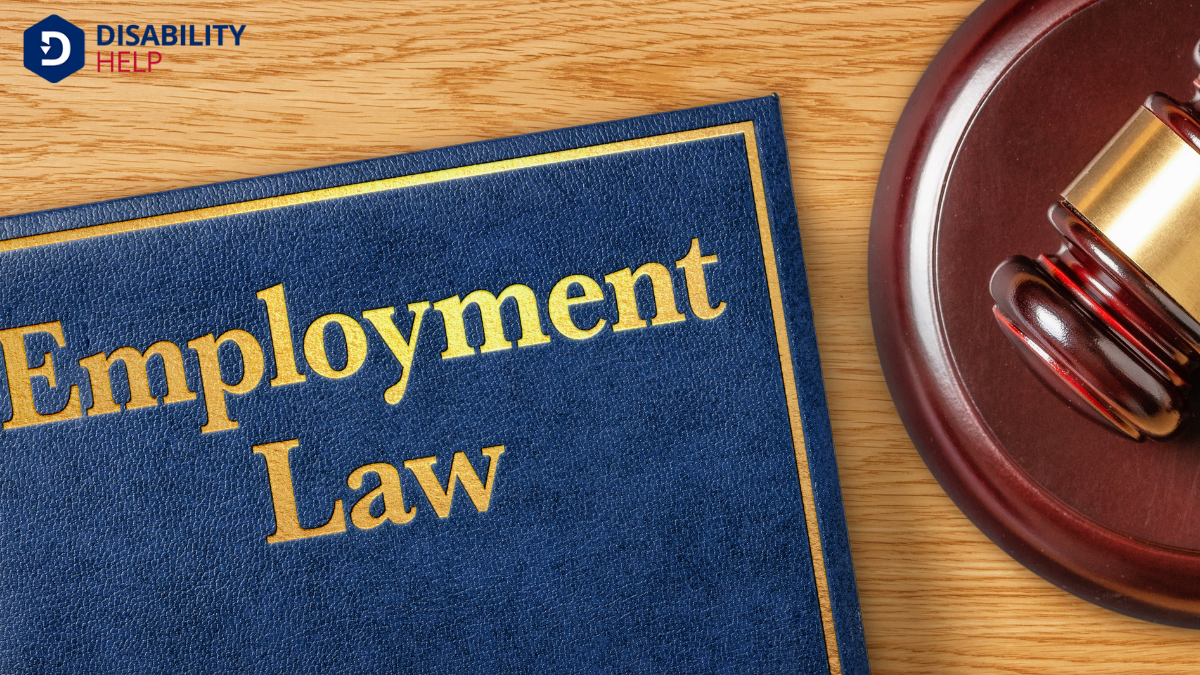I've been wondering if my job can really force me to stay in a position that's causing me harm. It seems unfair, and I'm sure I'm not the only one in this situation. Employers do have a responsibility to guarantee our safety, right? But what happens when they don't, and how can we address it effectively? There's a lot to reflect on when it comes to understanding our rights and the steps we can take.
Key Takeaways
- Employers must provide a safe work environment under OSHA, ensuring positions do not harm employees.
- Employees have the right to request reasonable accommodationsModifications or adjustments in healthcare settings to support patients with disabilities. under the ADA if a job negatively impacts their health.
- Open communication with management is essential to address and resolve job-related health concerns.
- Documenting workplace incidents and their effects is crucial for discussions with HR or legal advisors.
- Consulting with an employment lawyer can clarify legal rights and options if a job position is harmful.
Understanding Your Rights as an Employee
As an employee, it's important to understand your rights to guarantee you're not being taken advantage of in the workplace. Knowing what you're entitled to can empower you to stand up when something feels wrong.
It's necessary to be aware of the terms in your employment contract, as it outlines your job duties and expectations. If you're asked to perform tasks that weren't agreed upon, or if your work is causing you harm, it's essential to address these issues.
You have a right to a safe and healthy work environment. Open communication with your employer is key. Don't hesitate to ask questions or seek clarification on any concerns.
Your well-being should always be prioritized, and understanding your rights is the first step.
Key Employment Laws and Regulations

Understanding your rights is just the beginning; knowing the key employment laws and regulations that protect those rights is equally important.
Let’s start with the Occupational Safety and Health Act (OSHA), which requires employers to provide a safe working environment. If your job is causing harm, OSHA might be your first line of defense.
Then, there’s the Americans with Disabilities Act (ADA)A U.S. law that prohibits discrimination against individuals with disabilities in all areas of publi..., which safeguards employees with disabilities, ensuring reasonable accommodations are provided.
The Fair Labor Standards Act (FLSA)A U.S. law that establishes minimum wage, overtime pay, and other labor standards, including provisi... sets standards for wages and hours, making sure you're fairly compensated.
Don't forget about the Family and Medical Leave Act (FMLA)A U.S. law that provides eligible employees with unpaid, job-protected leave for family and medical ..., which allows you to take unpaid leave for certain medical conditions.
Each of these laws is essential in defending your well-being at work.
Recognizing Signs of Physical and Psychological Harm
While it’s important to be aware of legal protections, recognizing signs of physical and psychological harm at work is equally important.
I've learned that fatigue, persistent headaches, or muscle pain could indicate physical strain. If you're feeling emotionally drained, anxious, or dread going to work, these might be signs of psychological distress. It’s vital to listen to your body and mind.
I once ignored these signs, thinking it was just stress, but it only worsened.
Pay attention to changes in your behavior or mood, like irritability or difficulty concentrating. These aren't just personal issues; they're often workplace-related.
Trust your instincts. If something feels off, it probably is. You're not alone, and it’s okay to acknowledge that work is affecting you negatively.
Strategies for Addressing Workplace Concerns
When faced with workplace concerns, taking proactive steps can make a significant difference in your well-being and job satisfaction.
First, it’s crucial to clearly identify what's causing the distress. Once you've pinpointed the issue, document specific incidents or patterns that have impacted you. This documentation can serve as a solid foundation for any discussions you might have.
Next, set up a meeting with your supervisor to express your concerns calmly and professionally. Use "I" statements to focus on how the situation affects you personally. This approach can foster constructive dialogue and lead to potential solutions.
Finally, consider seeking support from colleagues or mentors who may have faced similar challenges. Their insights can offer guidance and reassurance, empowering you to address your concerns effectively.
The Role of Human Resources and Management

Having addressed personal workplace concerns, it's equally important to recognize the pivotal role that Human Resources (HR)The department within a company responsible for managing employee relations, benefits, and complianc... and management play in resolving issues. They’re here to support employees, ensuring a safe and healthy work environment.
When I face a problem that impacts my well-being, HR is a resource I shouldn’t overlook. They're trained to listen and address these concerns, acting as a bridge between me and management.
Management, on the other hand, has the responsibility to implement solutions that align with company policies and employee needs. Open communication is key.
Exploring Legal Options and Seeking Professional Advice
How do I navigate the complex landscape of legal rights at work? Understanding your options if your job negatively impacts your health is essential. Here's how you can take action:
- Consult an Employment Lawyer: They can clarify your rights, helping you determine if your employer is violating any labor laws or health and safety regulations.
- Document Everything: Keep a record of any correspondence or incidents related to your work conditions. This documentation can be significant if you decide to pursue legal action.
- Seek Professional Advice: Besides legal counsel, consider consulting with a career coach or therapist to explore your options, ensuring your well-being isn't compromised.
These steps can empower you to make informed decisions about your work situation.
Conclusion
Ultimately, it's crucial to know you have rights if your job is causing you harm. Don't hesitate to document your symptoms and speak up to your supervisor or HR. They're obligated to address your concerns and guarantee your well-being. Remember, you don’t have to endure a harmful work environment. Explore your options, seek professional advice if needed, and prioritize your health. You're not alone in this, and there are resources to support you.






